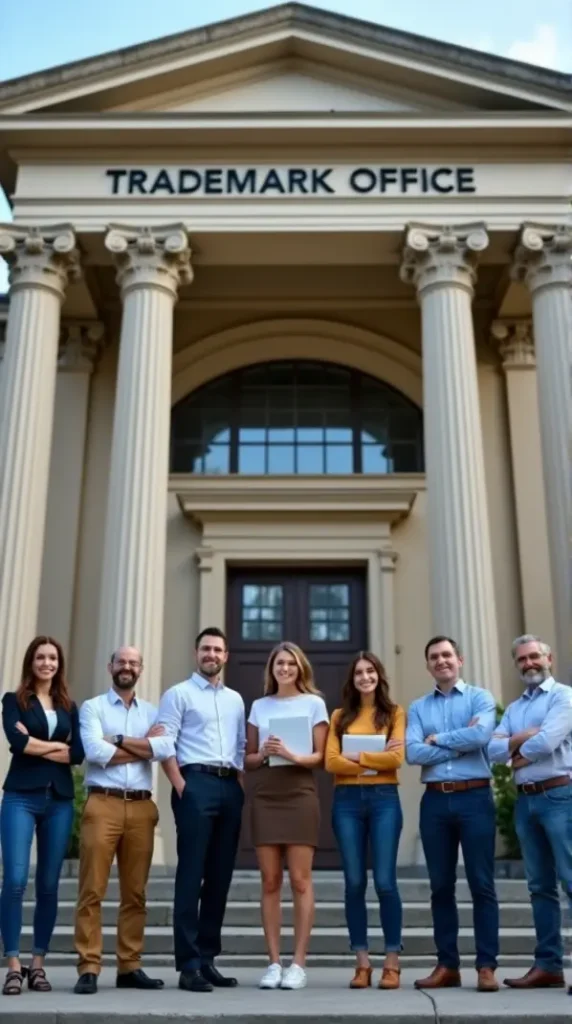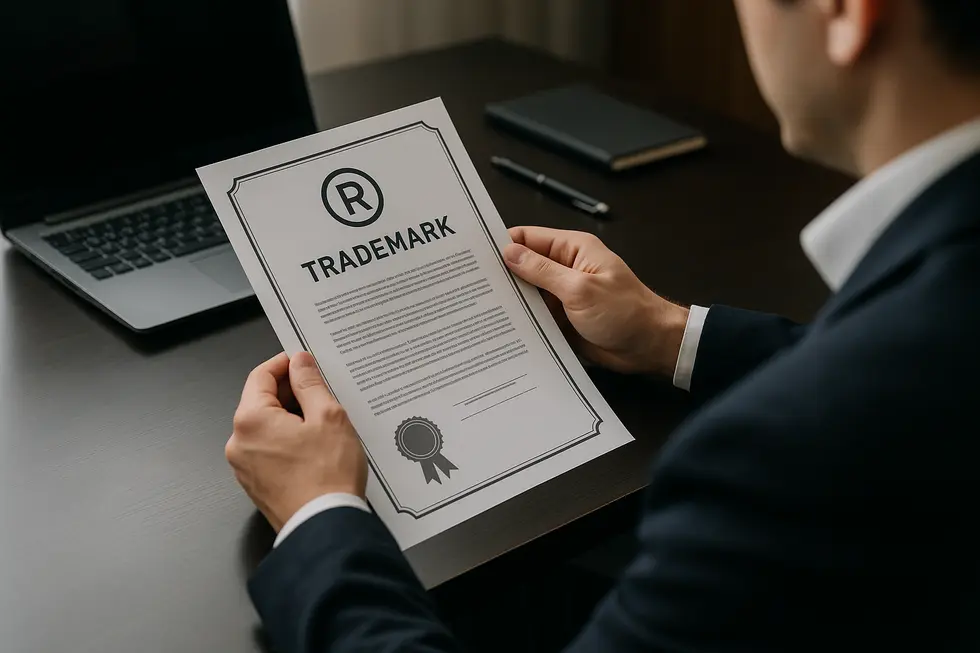Introduction
L'enregistrement des droits d'auteur est un atout stratégique pour les chefs d'entreprise qui recherchent une protection solide et une valeur accrue pour leur propriété intellectuelle. En enregistrant officiellement les droits d'auteur, les entreprises établissent une propriété juridique concrète qui offre de solides protections contre les utilisations non autorisées et les infractions. Au-delà de la protection de la créativité, l'enregistrement offre des avantages financiers essentiels, des avantages en matière d'application et un contrôle mondial des droits, ce qui représente un avantage commercial considérable. Cette exploration s'articule autour de trois dimensions essentielles : les atouts juridiques et financiers que confère l'enregistrement, la manière dont l'enregistrement précoce améliore les capacités d'application des droits, et les vastes possibilités de contrôle commercial et de monétisation qu'il ouvre à l'échelle mondiale. La compréhension de ces aspects permet aux propriétaires d'entreprises de tirer pleinement parti de l'enregistrement des droits d'auteur pour protéger et développer leurs actifs créatifs.
Tables des matières
Chapitre 1 : Protections juridiques et avantages financiers de l'enregistrement des droits d'auteur
- Renforcer les revendications de propriété et le respect des droits par l'enregistrement des droits d'auteur
- Débloquer des recours plus forts en cas de litige : Dommages-intérêts légaux, honoraires d'avocat et avantages de la preuve grâce à l'enregistrement
- Maximiser les revenus et lutter contre la contrefaçon grâce à l'enregistrement des droits d'auteur
Chapitre 2 : Avantages de l'enregistrement des droits d'auteur en matière de respect des droits et d'enregistrement anticipé
- Débloquer le pouvoir juridique : comment l'enregistrement précoce des droits d'auteur renforce l'application de la législation
- Débloquer des recours solides : Comment les dommages-intérêts légaux et les honoraires d'avocat renforcent l'application précoce du droit d'auteur
- Débloquer l'effet de levier juridique : Comment l'enregistrement précoce des droits d'auteur renforce les capacités de mise en œuvre
Chapitre 3 : Contrôle global des droits et avantages commerciaux de l'enregistrement des droits d'auteur
- Naviguer dans les traités internationaux pour une protection sans faille des droits d'auteur dans le monde entier
- Naviguer entre les limites territoriales et les défis de mise en œuvre pour maximiser les avantages du droit d'auteur
- Exploiter l'enregistrement des droits d'auteur pour la gestion stratégique des actifs mondiaux et l'expansion du marché
Chapitre 1 : Protections juridiques et avantages financiers de l'enregistrement des droits d'auteur

1. Renforcer les revendications de propriété et le respect des droits par l'enregistrement des droits d'auteur
L'enregistrement des droits d'auteur constitue un outil juridique puissant en établissant un registre public et clair de la propriété que les tribunaux reconnaissent comme une preuve prima facie. Cette présomption de validité simplifie l'application des droits en transférant la charge de la preuve de l'invalidité aux demandeurs, renforçant ainsi la position du titulaire du droit d'auteur en cas de litige. L'enregistrement est une condition préalable à l'introduction d'une action en justice pour contrefaçon, ce qui permet aux titulaires de droits de défendre activement leurs œuvres créatives contre les utilisations non autorisées. En outre, il permet de bénéficier de réparations financières importantes, telles que les dommages-intérêts légaux et les honoraires d'avocat - des ressources qui ne sont généralement pas disponibles sans l'enregistrement. Ces recours dissuadent les contrevenants en augmentant le coût des violations et en aidant à récupérer les frais de justice. Le dossier public créé par l'enregistrement sensibilise également à la propriété, décourageant les contrefacteurs potentiels avant que les conflits ne surviennent. Au-delà de l'application de la loi, l'enregistrement transforme les droits d'auteur en actifs tangibles ayant une valeur commerciale, ce qui facilite l'octroi de licences ou la vente et accroît le potentiel économique. Pour les créateurs, un enregistrement précoce et diligent, associé à une documentation complète de la création, renforce la force probante et accélère la réponse à la contrefaçon. Ces aspects combinés font de l'enregistrement des droits d'auteur une étape essentielle pour protéger et maximiser la valeur des œuvres créatives. Pour en savoir plus sur les avantages de l'enregistrement en matière d'application de la loi, consultez l'analyse détaillée d'Aaron Hall sur l'application de la loi et l'enregistrement des droits d'auteur.
2. Débloquer des recours plus forts en cas de litige : Les dommages-intérêts légaux, les honoraires d'avocat et l'avantage de la preuve grâce à l'enregistrement
Débloquer des recours plus forts en cas de litige : Dommages-intérêts légaux, honoraires d'avocat et avantages de la preuve grâce à l'enregistrement
L'enregistrement d'un droit d'auteur est une étape cruciale qui transforme la simple propriété en un pouvoir juridique exécutoire. Une fois enregistré, le droit d'auteur bénéficie d'une présomption légale de validité, ce qui signifie qu'il incombe aux contestataires de prouver le contraire. Cela simplifie l'application de la loi et renforce la position du propriétaire en cas de litige. Surtout, seuls les droits d'auteur enregistrés peuvent donner lieu à des dommages-intérêts légaux et à des honoraires d'avocat, des recours qui renforcent considérablement la protection financière contre les atteintes aux droits d'auteur. Les dommages-intérêts légaux permettent de fixer des montants sans qu'il soit nécessaire de prouver l'existence d'un préjudice réel, ce qui dissuade l'utilisation non autorisée grâce à des sanctions potentielles allant de $750 à $150 000 en cas de violation délibérée.
Les honoraires d'avocat et les frais de justice, qui représentent souvent des dépenses considérables en cas de litige, deviennent recouvrables, ce qui réduit les risques financiers pour les titulaires de droits et encourage l'application de la législation. L'enregistrement précoce permet d'intenter rapidement des actions en contrefaçon devant les tribunaux fédéraux, ce qui améliore les options stratégiques. En outre, l'enregistrement crée un registre public qui sert de preuve prima facie de la propriété, ce qui simplifie le processus de preuve des revendications devant les tribunaux.
Ce cadre juridique est particulièrement vital pour les œuvres numériques et les logiciels, pour lesquels une application rapide peut empêcher une distribution non autorisée à grande échelle. Dans l'ensemble, l'enregistrement n'établit pas seulement la preuve de la propriété, mais permet directement d'accéder à l'ensemble des avantages liés aux litiges, en renforçant la défense juridique et monétaire contre les infractions.
Pour en savoir plus sur les avantages et la procédure d'enregistrement des droits d'auteur, consultez les orientations suivantes guide des coûts des avocats spécialisés en droit d'auteur et des informations plus approfondies sont disponibles sur Kindlepreneur.
3. Maximiser les revenus et lutter contre la contrefaçon grâce à l'enregistrement des droits d'auteur
L'enregistrement des droits d'auteur offre aux créateurs une puissante combinaison de force juridique et d'opportunités financières. L'enregistrement officiel de la propriété permet non seulement de dissuader les utilisations non autorisées grâce à la publicité, mais aussi de simplifier l'application de la loi. L'enregistrement fait office de preuve prima facie devant les tribunaux, ce qui donne aux propriétaires une position plus forte pour protéger leurs droits. Sur le plan financier, les droits d'auteur enregistrés deviennent des actifs incorporels de grande valeur qui peuvent être concédés sous licence ou vendus, générant ainsi des flux de revenus supplémentaires sans perte de propriété. Les accords de licence permettent aux créateurs d'accorder des droits d'utilisation spécifiques tout en conservant le contrôle, transformant ainsi les œuvres créatives en sources de revenus permanentes. En outre, les droits d'auteur enregistrés améliorent souvent l'évaluation des entreprises et peuvent offrir des avantages fiscaux potentiels lorsqu'ils sont cédés ou concédés de manière stratégique. L'enregistrement précoce est crucial, car il donne accès aux dommages-intérêts légaux et aux honoraires d'avocat qui imposent des conséquences financières importantes aux contrevenants, ce qui constitue un moyen de dissuasion redoutable contre les infractions. Ce double rôle de l'enregistrement des droits d'auteur - garantir des droits exécutoires et permettre la monétisation - le rend indispensable pour les créateurs et les entreprises. Pour mieux comprendre l'importance de la protection du droit d'auteur pour les entreprises, consultez cette ressource sur le site de l'OMPI. avantages du droit d'auteur pour les entreprises.
L'ensemble de ces avantages montre que l'enregistrement des droits d'auteur transforme les œuvres créatives en actifs légalement protégés et générateurs de revenus, soutenant ainsi les stratégies défensives et commerciales.
Chapitre 2 : Avantages de l'enregistrement des droits d'auteur en matière de respect des droits et d'enregistrement anticipé

1. Débloquer le pouvoir juridique : comment l'enregistrement précoce des droits d'auteur renforce l'application de la législation
L'enregistrement des droits d'auteur est un outil juridique essentiel qui permet aux créateurs de défendre efficacement leurs œuvres. Il s'agit d'une condition préalable à la poursuite des actions en contrefaçon, car il garantit que les tribunaux reconnaissent la revendication. Une fois enregistré, le titulaire du droit d'auteur a accès à des dommages-intérêts légaux allant de $750 à $150 000 pour les violations délibérées, ainsi qu'à des honoraires d'avocat et à des frais de justice remboursables - des recours impossibles à obtenir sans un enregistrement en temps utile. Le certificat d'enregistrement sert également de preuve prima facie de la propriété, ce qui simplifie les litiges en déplaçant la charge de la preuve vers les contrefacteurs présumés. Au-delà des litiges, l'enregistrement crée un registre public qui dissuade les utilisations non autorisées en signalant les droits exécutoires. L'enregistrement précoce amplifie ces avantages, en débloquant tous les recours juridiques dans les trois mois suivant la publication et en permettant de réagir rapidement aux infractions potentielles par des avis de retrait ou des règlements à l'amiable. Cette approche proactive minimise le préjudice économique et renforce le pouvoir de négociation, préservant ainsi la valeur commerciale de l'œuvre. En combinant la condition préalable légale, le poids de la preuve et la dissuasion, l'enregistrement précoce des droits d'auteur constitue une base indispensable pour une application et une protection efficaces des droits. Pour plus de détails sur les considérations relatives aux coûts juridiques, voir notre guide sur coût des avocats spécialisés dans les droits d'auteur. Des informations supplémentaires sont disponibles dans l'analyse complète d'Aaron Hall sur l'application du droit d'auteur et l'enregistrement anticipé.
2. Débloquer des recours solides : Comment les dommages-intérêts légaux et les honoraires d'avocat renforcent l'application précoce du droit d'auteur
Les dommages-intérêts légaux et les honoraires d'avocat constituent des piliers essentiels de l'application du droit d'auteur, accessible principalement par le biais d'un enregistrement en temps voulu. L'enregistrement ne crée pas seulement un registre public confirmant la propriété, mais est également une condition préalable à l'introduction d'une action en contrefaçon devant un tribunal fédéral. Sans cela, les détenteurs de droits d'auteur ne peuvent généralement pas réclamer de dommages-intérêts statutaires ni récupérer les honoraires d'avocat, ce qui limite les recours aux dommages et bénéfices réels, souvent difficiles à prouver.
Les dommages-intérêts légaux prévoient des indemnités pécuniaires définies comprises entre 1 450 et 1 30 000 euros par œuvre pour une infraction ordinaire et peuvent atteindre 1 150 000 euros en cas d'infraction délibérée, quelle que soit la perte réelle. Cette possibilité de sanctions financières importantes dissuade les contrefacteurs et permet aux titulaires de protéger leurs droits de manière efficace. En outre, les parties gagnantes peuvent récupérer les honoraires d'avocat, ce qui réduit la charge financière des litiges et encourage l'application des droits.
L'enregistrement précoce renforce ces avantages en permettant une action rapide contre l'utilisation non autorisée, comme le dépôt d'avis de démontage ou la poursuite rapide d'un règlement. Il établit également une preuve prima facie de la propriété, déplaçant la charge de la preuve vers ceux qui contestent le droit d'auteur. Cette combinaison crée une situation juridique solide qui dissuade les contrevenants et facilite l'application des droits.
Ensemble, les dommages-intérêts légaux et les honoraires d'avocat amplifient les protections offertes par l'enregistrement des droits d'auteur, ce qui fait de l'enregistrement précoce et adéquat une nécessité stratégique pour les créateurs. Pour en savoir plus sur les protections juridiques et les coûts, consultez le guide détaillé suivant coûts des avocats spécialisés dans les droits d'auteur.
Pour en savoir plus sur les cas d'application et les avantages de l'enregistrement, consultez l'article complet d'Aaron Hall.
3. Débloquer l'effet de levier juridique : Comment l'enregistrement précoce des droits d'auteur renforce les capacités de mise en œuvre
L'enregistrement précoce des droits d'auteur offre des avantages pratiques et procéduraux indispensables qui permettent aux créateurs de faire valoir leurs droits plus efficacement. En établissant un registre officiel et public de la propriété, l'enregistrement fournit une preuve indéniable de la légitimité et de la date, ce qui simplifie considérablement tout litige. Cet enregistrement public sert de preuve prima facie, ce qui signifie que les tribunaux acceptent généralement la validité du droit d'auteur sans exiger du titulaire qu'il présente une documentation exhaustive. En outre, l'enregistrement précoce est une condition préalable obligatoire pour intenter une action en contrefaçon devant un tribunal fédéral, ce qui permet aux titulaires de droits d'engager rapidement une action en justice.
En plus de faciliter les litiges, l'enregistrement précoce ouvre l'accès aux dommages-intérêts légaux et aux honoraires d'avocat, des réparations qui peuvent largement compenser les pertes réelles et servir de puissants moyens de dissuasion contre la contrefaçon. Il décourage également les contrefacteurs potentiels en signalant que le titulaire est prêt à faire respecter ses droits, prévenant ainsi les litiges avant qu'ils ne s'aggravent. L'enregistrement en temps utile permet d'éviter les pièges procéduraux et de préserver l'ensemble des recours juridiques disponibles, tandis que le maintien d'un portefeuille clair et organisé permet d'identifier rapidement les utilisations non autorisées. Les créateurs qui procèdent à un enregistrement précoce optimisent ainsi leur boîte à outils, protégeant à la fois leurs œuvres créatives et leurs intérêts économiques presque immédiatement après la publication.
Pour en savoir plus sur le rôle essentiel que joue le droit d'auteur dans le domaine de la propriété intellectuelle, consultez le site suivant Quel est le type de propriété intellectuelle ?.
Référence : [1]
Chapitre 3 : Contrôle global des droits et avantages commerciaux de l'enregistrement des droits d'auteur

1. Naviguer dans les traités internationaux pour une protection homogène des droits d'auteur dans le monde entier
La protection du droit d'auteur s'étend au-delà des frontières nationales grâce à un réseau complexe de traités et d'organisations internationales qui créent un cadre unifié pour le contrôle des droits au niveau mondial. Au cœur de ce système se trouve la Convention de Berne, qui garantit aux créateurs une protection automatique et égale dans presque tous les pays, sans qu'ils aient besoin de s'enregistrer séparément dans chacun d'entre eux. Ce traité garantit des droits minimaux tels que la reproduction, l'adaptation et l'exécution publique, ce qui favorise le respect international des œuvres créatives.
En complément de la Convention de Berne, des accords tels que l'Accord sur les ADPIC intègrent l'application du droit d'auteur dans les règles du commerce mondial, obligeant les pays membres à maintenir des niveaux de protection normalisés. L'Organisation mondiale de la propriété intellectuelle (OMPI) joue un rôle essentiel en établissant des normes internationales et en gérant des systèmes d'enregistrement rationalisés qui réduisent les obstacles administratifs pour les titulaires de droits cherchant à obtenir une protection dans plusieurs pays.
Bien que l'enregistrement ne soit pas obligatoire en vertu de nombreux traités, l'obtention d'un enregistrement formel des droits d'auteur reste une étape stratégique essentielle. Il renforce la base de preuve dans les litiges et facilite les efforts d'application dans les juridictions où les différentes lois locales et les nuances culturelles influencent la conformité. Les détenteurs de propriété intellectuelle ont tout intérêt à adapter leurs stratégies de protection au niveau régional, souvent en s'appuyant sur des conseils juridiques spécialisés pour naviguer efficacement dans les cadres locaux.
Cette orchestration mondiale de traités et de systèmes permet aux créateurs et aux entreprises de protéger leurs œuvres et de maximiser les opportunités commerciales au niveau international, ce qui sous-tend les avantages plus larges évoqués dans le présent chapitre. Pour une étude approfondie de ces cadres et des conseils pratiques, voir l'aperçu complet de Global Law Experts sur la propriété intellectuelle internationale.
2. Naviguer entre les limites territoriales et les défis de mise en œuvre pour maximiser les avantages du droit d'auteur
Naviguer entre les limites territoriales et les défis de mise en œuvre pour maximiser les avantages du droit d'auteur
La nature territoriale du droit d'auteur signifie que la protection et l'application sont confinées à l'intérieur des frontières de chaque pays. Cette limitation complique les efforts visant à sauvegarder les droits au niveau mondial, car l'utilisation non autorisée traverse souvent les frontières, tandis que les recours juridiques restent spécifiques à chaque juridiction. Chaque pays applique des normes juridiques et des recours différents, allant de l'injonction à des dommages-intérêts pécuniaires variables, ce qui complique l'application des droits pour les titulaires de droits d'auteur opérant à l'échelle internationale.
Les accords internationaux tels que l'accord sur les ADPIC fixent des normes de base mais laissent aux tribunaux nationaux le soin de les faire respecter, ce qui maintient ce cadre territorial. Les systèmes régionaux, comme l'EUIPO pour les États européens, offrent un enregistrement des droits et une mise en œuvre plus rationalisés, mais les actions se déroulent toujours au niveau local. Pour les titulaires de droits d'auteur, le fait d'assurer l'enregistrement dans plusieurs juridictions ou de s'appuyer sur ces cadres renforce la capacité juridique et la preuve de la propriété, ce qui est essentiel dans les litiges transfrontaliers.
Cet environnement multi-juridictionnel signifie qu'un enregistrement complet des droits d'auteur ne soutient pas seulement la protection juridique mais renforce le potentiel commercial. Il permet aux créateurs et aux entreprises de faire respecter leurs droits à l'échelle mondiale, en particulier sur les marchés numériques où le piratage dépasse facilement les frontières. Il est donc essentiel de comprendre et de gérer la dynamique de l'application territoriale pour tirer pleinement parti des avantages commerciaux de l'enregistrement des droits d'auteur.
Pour un aperçu détaillé des cadres conventionnels internationaux qui aident à relever ces défis, voir le guide d'ETB Law. Guide sur l'application transfrontalière des droits de propriété intellectuelle.
Pour les créateurs intéressés par la manière dont l'enregistrement des droits d'auteur complète d'autres stratégies de propriété intellectuelle, l'article sur les avantages de l'entreprise de droits d'auteur fournit des informations utiles.
3. Exploiter l'enregistrement des droits d'auteur pour la gestion stratégique des actifs mondiaux et l'expansion du marché
L'enregistrement des droits d'auteur est un outil essentiel pour les créateurs et les entreprises qui souhaitent s'implanter solidement sur les marchés mondiaux. En garantissant un registre public de la propriété, il permet non seulement de renforcer l'application des droits, mais aussi de transformer des œuvres créatives immatérielles en actifs commerciaux de grande valeur. La présomption légale de validité associée à l'enregistrement déplace la charge sur les challengers, simplifiant la protection contre les infractions et renforçant la sécurité commerciale du matériel protégé par le droit d'auteur. Cette base permet aux détenteurs de droits de monétiser leurs œuvres par le biais de licences et de cessions transfrontalières, transformant ainsi les droits d'auteur en sources de revenus significatives. L'enregistrement stratégique des droits d'auteur sur les principaux marchés internationaux permet d'aligner les protections sur des traités tels que la Convention de Berne, ce qui garantit une application cohérente des droits dans le monde entier. Au-delà de la protection des actifs, cela facilite les accords de licence transfrontaliers complexes, qui soutiennent la distribution mondiale tout en contrôlant le risque concurrentiel. Le suivi vigilant de l'évolution des lois internationales sur la propriété intellectuelle et des tendances en matière de piratage améliore encore la gestion des droits, ce qui permet d'agir rapidement en cas d'infraction. Ensemble, ces efforts font passer les œuvres protégées par le droit d'auteur du statut de simples expressions créatives à celui de propriétés commerciales gérées de manière stratégique, ce qui permet aux propriétaires de maximiser leur portée mondiale et leur rendement financier. Pour en savoir plus sur les stratégies efficaces d'octroi de licences, consultez le site suivant guide des licences de droits d'auteur.
Dernières réflexions
L'enregistrement des droits d'auteur est un outil de transformation qui permet aux propriétaires d'entreprises de sécuriser et de maximiser la valeur de leur propriété intellectuelle. Il crée une base juridique incontestable qui facilite une protection vigoureuse et un recouvrement financier par le biais de dommages-intérêts légaux et d'honoraires d'avocat. L'enregistrement précoce permet non seulement de rationaliser les mesures d'application, mais aussi de disposer d'un avantage stratégique important en permettant de réagir rapidement en cas d'infraction. Au-delà des garanties juridiques, l'enregistrement des droits d'auteur permet un contrôle global des droits qui protège l'essence créative des œuvres tout en libérant un potentiel commercial diversifié par le biais de licences, d'adaptations et de ventes.
Les chefs d'entreprise qui accordent la priorité à l'enregistrement des droits d'auteur se donnent les moyens d'une meilleure défense juridique, d'avantages financiers accrus et d'un élargissement des débouchés. Cette approche globale de la gestion de la propriété intellectuelle est essentielle pour conserver un avantage concurrentiel et favoriser une croissance durable dans une économie de plus en plus axée sur la connaissance et la créativité.
Obtenez votre marque dès aujourd'hui ! Des milliers de personnes ont protégé leur marque en déposant une marque. Qu'attendez-vous ? Commencez à déposer votre marque !
A propos de nous
Le premier site web au monde pour l'enregistrement des marques et la protection de votre marque, de votre nom, de votre logo ou de votre slogan. Il s'agit d'une plateforme accessible qui vous permet de protéger votre propriété intellectuelle et de développer votre entreprise en toute confiance.







